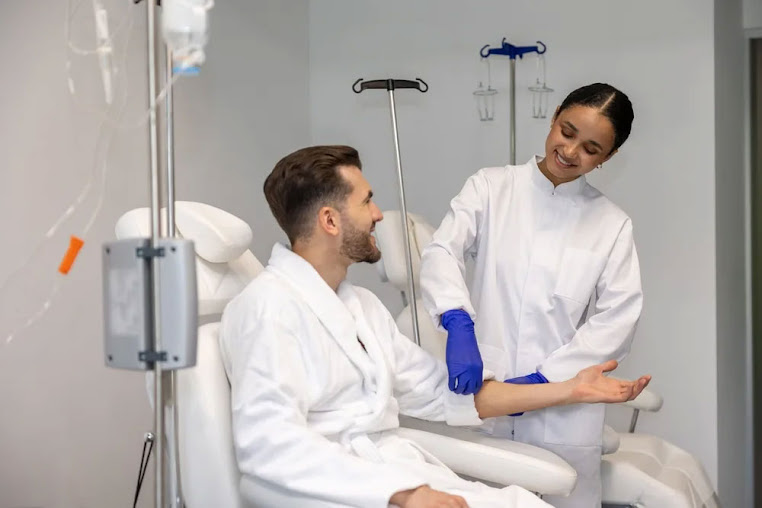Does Glutathione IV Drip Reverse Aging?
In the quest for youthful skin and overall vitality, many people turn to advanced treatments that promise anti-aging benefits. One such method gaining popularity is the glutathione IV drip, a therapy believed to combat oxidative stress and slow down aging. For those seeking premium wellness solutions, IV drip Dubai offers access to cutting-edge treatments designed to enhance well-being. But does glutathione truly reverse aging, or is it just another trend? This article explores the science behind glutathione IV therapy and its potential effects on aging.
What is Glutathione? and Its Role in the Body
Glutathione is a powerful antioxidant naturally produced in the body. It plays a crucial role in detoxification, immune function, and cellular repair. As we age, glutathione levels decline, leading to increased oxidative stress—a key contributor to aging. Oxidative stress damages cells, accelerates skin aging, and weakens the body’s ability to repair itself.
The Science Behind Glutathione and Anti-Aging
Research suggests that glutathione has several properties that may help counteract aging:
Antioxidant Protection
Free radicals are unstable molecules that damage cells, leading to wrinkles, fine lines, and other signs of aging. Glutathione neutralizes these harmful molecules, potentially slowing down cellular damage.
Skin Brightening Effects
Glutathione inhibits melanin production, which can lead to a brighter, more even skin tone. Many people use it to reduce hyperpigmentation and achieve a radiant complexion.
Detoxification Support
By enhancing liver function, glutathione helps eliminate toxins that contribute to premature aging. A well-functioning detox system ensures healthier skin and overall vitality.
Immune System Boost
A strong immune system is essential for maintaining youthful energy and resilience. Glutathione supports immune cell function, which may indirectly contribute to anti-aging benefits.
Does Glutathione IV Drip Actually Reverse Aging?
The idea of "reversing" aging is complex. Aging is a natural biological process influenced by genetics, lifestyle, and environmental factors. While glutathione IV therapy may help mitigate some signs of aging, it cannot completely turn back the clock.
Potential Benefits
Reduced Oxidative Stress: By combating free radicals, glutathione may slow down cellular aging.
Improved Skin Texture: Some users report smoother, more luminous skin after regular sessions.
Enhanced Energy Levels: Better cellular function can lead to increased vitality.
Limitations
Temporary Effects: Glutathione levels may drop again without consistent treatment.
Individual Variability: Results vary based on genetics, diet, and overall health.
No Miracle Cure: It works best alongside a healthy lifestyle, not as a standalone solution.
Is Glutathione IV Therapy Safe?
Glutathione IV drips are generally considered safe when administered by trained professionals. However, potential side effects may include:
Mild nausea or dizziness
Allergic reactions (rare)
Lower zinc levels with prolonged use
Consulting a healthcare provider before starting treatment is essential to ensure safety and suitability.
Alternative Ways to Boost Glutathione Naturally
While IV therapy delivers glutathione directly into the bloodstream, certain lifestyle choices can also support natural production:
Eating sulfur-rich foods (garlic, onions, cruciferous vegetables)
Consuming antioxidants (vitamin C, selenium, alpha-lipoic acid)
Regular exercise and adequate sleep
These methods may not be as potent as an IV drip but can contribute to maintaining optimal glutathione levels over time.
Conclusion
The glutathione IV drip is an intriguing option for those seeking anti-aging solutions. Its antioxidant properties, skin-brightening effects, and detox benefits make it a compelling choice. However, it should be viewed as a supplementary treatment rather than a definitive cure for aging. By combining such therapies with a healthy lifestyle, individuals may achieve a more vibrant, youthful appearance while supporting long-term well-being.




Comments
Post a Comment